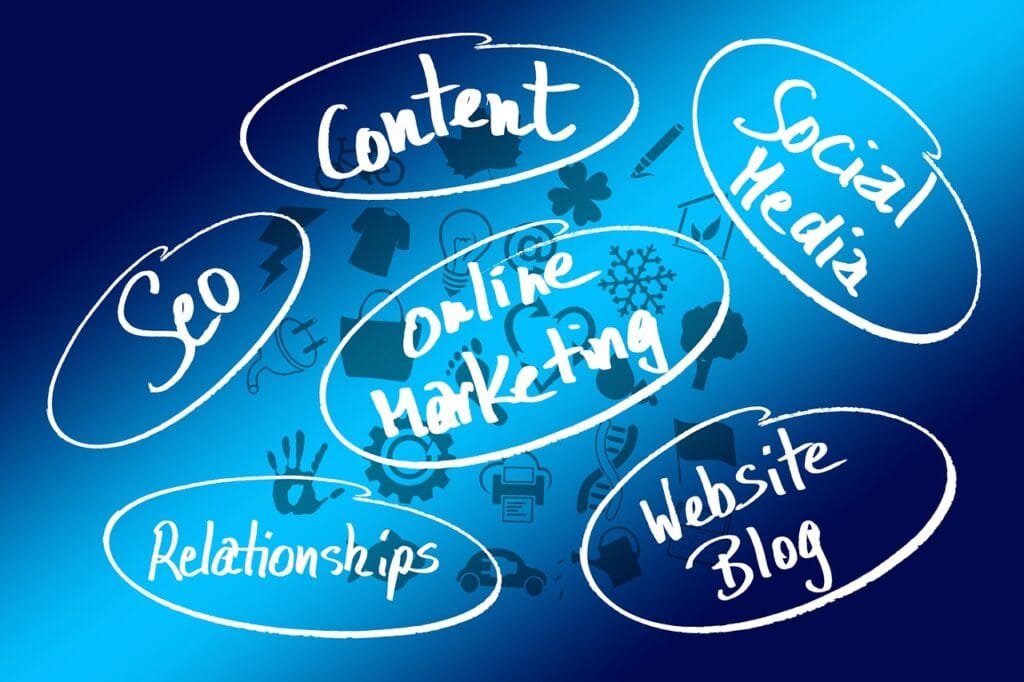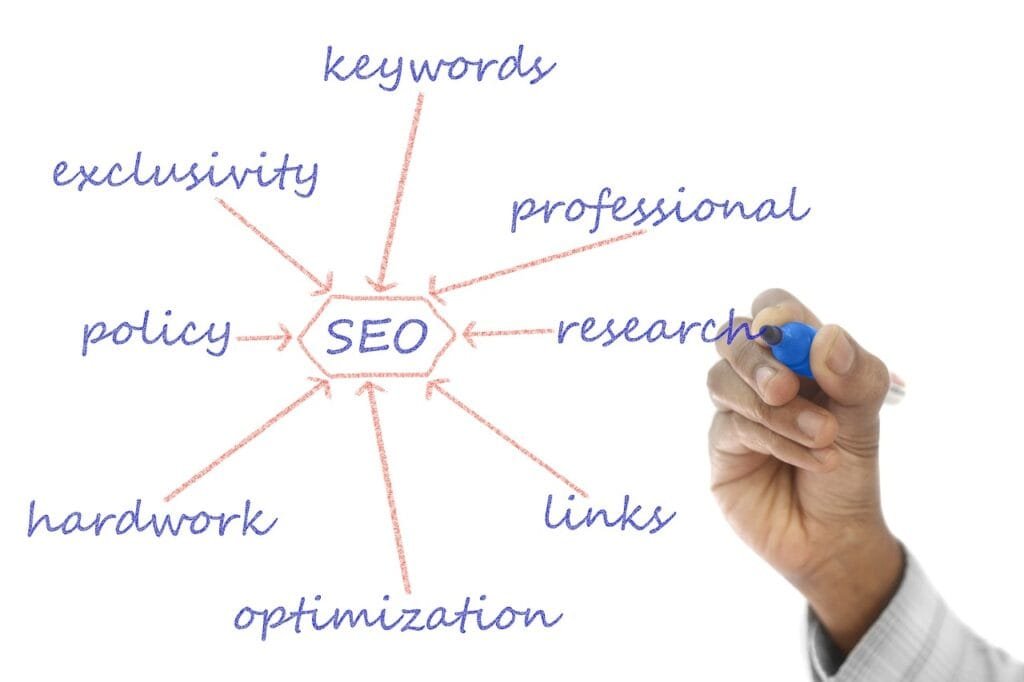This Article has been revised, edited and added to, by Poulomi Chakraborty.
- Introduction to User-Generated Content (UGC)
- The Power of Reviews: Building Credibility
- Harnessing Testimonials: Personalizing Your Brand
- Building a UGC Strategy: From Collection to Promotion
- The Ethical Dimension: Transparency and Honesty
- Measuring UGC Impact: Analytics and Key Performance Indicators (KPIs)
- Legal Considerations: Compliance and Intellectual Property
- Challenges and Pitfalls: Navigating UGC Hurdles
- Future Trends in UGC for Alternative Energy Startups
- Conclusion: A Sustainable Future Powered by UGC
In the fast-evolving world of alternative energy startups, gaining trust and credibility can be a challenging endeavor. Consumers are increasingly conscious of the environmental impact of their energy choices and are seeking reliable, sustainable, and innovative solutions. To stand out in this competitive landscape, startups need to leverage user-generated content (UGC) in the form of reviews and testimonials. In this comprehensive guide, we will explore how UGC can be harnessed effectively by alternative energy startups to build trust, drive growth, and make a positive impact on the planet.
Introduction to User-Generated Content (UGC)

What is User-Generated Content?
User-Generated Content (UGC) refers to any content, such as text, images, videos, or reviews, created by individuals rather than by a brand or organization. In the context of alternative energy startups, UGC can encompass customer reviews, testimonials, social media posts, and even user-generated photos or videos showcasing their experiences with the products or services.
UGC is considered highly valuable because it provides an authentic and unfiltered perspective on a brand, product, or service. It’s the digital equivalent of word-of-mouth recommendations, and it carries significant weight in consumers’ decision-making processes.
Why is UGC Important for Alternative Energy Startups?
Alternative energy startups often face skepticism from consumers who are cautious about adopting new technologies or shifting from traditional energy sources. UGC plays a pivotal role in addressing these concerns by:
- Building Trust: Reviews and testimonials from real customers add credibility to your startup’s claims. When potential customers see others like them benefiting from your solutions, they are more likely to trust your brand.
- Demonstrating Reliability: UGC showcases the real-world performance of your alternative energy solutions. It provides evidence of your products’ effectiveness and reliability, helping to dispel doubts.
- Personalizing Your Brand: Testimonials humanize your brand by putting faces and stories behind your products. This personal connection can foster a sense of trust and loyalty among your audience.
- Boosting Conversions: Positive UGC can significantly increase conversion rates. When potential customers read about the positive experiences of others, they are more likely to take the plunge and become paying customers.
The Power of Reviews: Building Credibility
The Impact of Positive Reviews
Positive reviews are a cornerstone of building credibility for alternative energy startups. When potential customers encounter a stream of positive feedback, they are more likely to view your offerings as trustworthy and effective. Here’s how positive reviews can benefit your startup:
- Social Proof: Positive reviews act as a form of social proof, signaling to potential customers that others have already tried and approved of your products or services. This can reduce the perceived risk of trying something new.
- Higher Search Engine Rankings: Search engines often prioritize websites with good user-generated content, including reviews. Higher rankings can result in increased organic traffic to your site.
- Improved Conversion Rates: Websites and landing pages that prominently display positive reviews can experience higher conversion rates. This is because reviews provide the reassurance and information potential customers need to make a purchasing decision.
Addressing Negative Reviews
While positive reviews are essential, negative reviews are inevitable. How you handle these negative comments can be just as crucial to your startup’s reputation. Here are some strategies for addressing negative reviews:
- Timely Response: Respond to negative reviews promptly and professionally. Acknowledge the customer’s concerns, apologize for any issues, and offer a solution if possible. This demonstrates your commitment to customer satisfaction.
- Encourage Constructive Feedback: Encourage customers to provide specific feedback rather than vague complaints. This can help you identify and address underlying issues more effectively.
- Learn and Improve: Use negative reviews as an opportunity for improvement. Analyze common complaints and work to address the root causes to prevent similar issues in the future.
- Maintain Transparency: Be transparent in your responses to negative reviews. Avoid getting defensive or argumentative, as this can further damage your brand’s reputation.
Leveraging Third-Party Review Platforms
To maximize the impact of reviews, consider leveraging third-party review platforms. These platforms, such as Trustpilot, Yelp, or Google My Business, offer several advantages:
- Increased Credibility: Reviews on third-party platforms are often viewed as more impartial and trustworthy than those hosted solely on your website.
- Wider Reach: These platforms have large user bases, potentially exposing your startup to a broader audience and increasing the chances of obtaining valuable UGC.
- SEO Benefits: Reviews on third-party platforms can improve your website’s search engine rankings, as search engines often crawl and index content from these sites.
Incorporating third-party review platforms into your UGC strategy can help your alternative energy startup build credibility and reach a wider audience.
Harnessing Testimonials: Personalizing Your Brand

Crafting Authentic Testimonials
Testimonials are a powerful form of UGC that offer a personal touch to your alternative energy startup’s brand. However, authenticity is paramount when crafting testimonials. Here’s how to create authentic testimonials:
- Real Customers: Seek testimonials from genuine customers who have had positive experiences with your products or services. Avoid fabricating testimonials, as authenticity is easily recognized by consumers.
- Specific Details: Encourage customers to provide specific details about their experiences. Generic or overly positive testimonials may come across as insincere.
- Diversity: Showcase a diverse range of testimonials from different types of customers. This can help potential customers relate to the experiences of others who share their circumstances.
- Honesty: Encourage honesty in testimonials. It’s okay if a testimonial includes minor criticisms, as this can make it more believable. Authenticity trumps perfection.
The Role of Video Testimonials
Video testimonials have become increasingly popular due to their ability to convey emotions and authenticity effectively. Here’s why video testimonials can be a game-changer for your alternative energy startup:
- Visual Impact: Videos engage both the visual and auditory senses, making them more memorable and impactful than text-based testimonials.
- Emotional Connection: Video testimonials allow customers to convey their emotions, enthusiasm, and passion for your products or services, which can be contagious.
- Increased Trust: Seeing real people speak on camera can enhance the credibility of testimonials, as viewers can assess body language and authenticity.
To create compelling video testimonials, consider providing customers with guidelines or questions to answer. Keep the process as natural as possible, allowing customers to speak from the heart about their experiences.
Showcasing Real-Life Success Stories
Beyond traditional testimonials, sharing real-life success stories can be a potent way to leverage UGC. Success stories go beyond short quotes and provide in-depth narratives of how your alternative energy solutions have positively impacted customers’ lives or businesses.
Here’s how to effectively showcase success stories:
- Detailed Narratives: Craft success stories with detailed narratives that describe the challenges customers faced, the solutions you provided, and the outcomes achieved.
- Visual Elements: Incorporate visuals such as photos, infographics, or charts to illustrate the transformation and results.
- Customer Interviews: Conduct interviews with satisfied customers to capture their stories in their own words. These interviews can be turned into articles, videos, or podcasts.
- Before-and-After Comparisons: Highlight the tangible benefits of your solutions by presenting before-and-after scenarios, demonstrating the positive impact on energy efficiency, cost savings, or environmental benefits.
By sharing real-life success stories, you not only showcase the effectiveness of your products or services but also inspire potential customers with relatable examples of positive change.

Related: Check out our free SEO suite

Building a UGC Strategy: From Collection to Promotion
Collecting User-Generated Content
Collecting UGC requires a strategic approach. Here’s how to gather valuable content from your customers:
- Request Reviews and Testimonials: Actively encourage your customers to leave reviews and testimonials after they’ve had a positive experience with your products or services. Make the process as simple as possible with clear instructions and user-friendly platforms.
- Leverage Social Media: Monitor social media channels for mentions, tags, and posts related to your brand. Engage with users who share their experiences and seek their permission to repurpose their content.
- Create Incentives: Consider offering incentives, such as discounts, exclusive access, or contests, to motivate customers to contribute UGC. However, ensure that these incentives comply with ethical standards and regulations.
- Use Surveys and Feedback Forms: Implement surveys and feedback forms to gather structured UGC. Ask specific questions about the customer’s experience, challenges they faced, and the benefits they gained from your products or services.
Moderation and Quality Control
Maintaining the quality and authenticity of UGC is essential. Here’s how to implement effective moderation and quality control measures:
- Moderation Guidelines: Establish clear guidelines for what constitutes acceptable UGC. Define rules for content that may be removed, such as hate speech or inappropriate language.
- Human Moderation: Assign a team or individual to oversee and moderate UGC. Human moderators can evaluate content for authenticity and adherence to guidelines.
- AI-Based Moderation: Consider using artificial intelligence (AI) tools to assist in content moderation. AI can quickly identify and flag potentially problematic content, allowing human moderators to focus on more nuanced cases.
- Quality over Quantity: Prioritize quality over quantity when it comes to UGC. A few authentic, well-crafted testimonials or reviews can have a more significant impact than a large volume of low-quality content.
Promoting UGC Across Marketing Channels
Once you’ve collected high-quality UGC, it’s time to put it to work across your marketing channels:
- Website Integration: Showcase reviews and testimonials prominently on your website’s homepage and product pages. Use eye-catching design elements to draw attention to them.
- Social Media Sharing: Share user-generated content on your social media profiles. Encourage engagement by asking questions or prompting discussions related to the content.
- Email Campaigns: Include UGC in your email marketing campaigns. Feature testimonials in newsletters, promotional emails, or follow-up messages to existing customers.
- Content Marketing: Create blog posts, articles, or case studies that incorporate UGC. This can provide additional context and value to potential customers.
- Paid Advertising: Consider using UGC in your paid advertising campaigns. Incorporating authentic reviews and testimonials into ads can increase click-through rates and conversions.
- Print Materials: If applicable, include UGC in printed marketing materials, such as brochures, flyers, and product packaging.
By promoting UGC effectively across various channels, you can harness its power to build trust, engage your audience, and drive growth for your alternative energy startup.
The Ethical Dimension: Transparency and Honesty

The Importance of Ethical UGC Practices
Maintaining ethical UGC practices is vital for alternative energy startups looking to build and maintain trust with their audience. Ethical UGC practices include:
- Authenticity: Ensuring that all UGC, including reviews and testimonials, is genuine and representative of real customer experiences. Fabricating content or misrepresenting customer feedback can lead to significant trust issues.
- Transparency: Being transparent about the source of UGC. If incentives or discounts were offered in exchange for UGC, disclose this information to maintain transparency with your audience.
- Privacy Protection: Respecting customer privacy by obtaining consent before sharing any content that includes personal information or images. Be sure to comply with data protection regulations.
- Honesty in Marketing: Avoiding deceptive marketing practices that may exaggerate the benefits or features of your products or services. Be truthful and accurate in your promotional materials.
Avoiding Manipulation and Misrepresentation
Ethical UGC practices also involve avoiding manipulation and misrepresentation. Here’s how to steer clear of these pitfalls:
- Avoiding Fake Reviews: Never create or encourage fake reviews. This unethical practice can lead to severe consequences, including damage to your brand’s reputation and legal repercussions.
- No Review Spamming: Refrain from spamming review platforms with excessive positive reviews or testimonials. This can raise suspicions and undermine trust.
- Not Misleading Through Editing: If you edit or modify UGC for any reason, ensure that it does not change the meaning or context of the original content. Any edits should be clearly disclosed.
- Resisting Pressure on Customers: Do not pressure customers into leaving positive reviews or testimonials. Coercion can lead to inauthentic content that damages trust.
User Privacy and Data Protection
When collecting and using UGC, it’s crucial to respect user privacy and adhere to data protection regulations, such as GDPR (General Data Protection Regulation). Here’s how to maintain compliance:
- Consent: Obtain clear and informed consent from customers before using their content. Clearly communicate how their content will be used and where it will be displayed.
- Data Security: Safeguard user data and content against data breaches. Implement strong security measures to protect customer information.
- Data Retention: Clearly define how long you will retain user-generated content and adhere to data retention policies.
- Data Access: Provide users with the ability to access, modify, or delete their content and personal information as required by data protection regulations.
By following ethical UGC practices, your alternative energy startup can build trust, maintain credibility, and foster positive relationships with customers while avoiding potential legal and reputational pitfalls.
Measuring UGC Impact: Analytics and Key Performance Indicators (KPIs)
Tracking UGC Engagement
To gauge the effectiveness of your UGC strategy, it’s crucial to track engagement metrics that reveal how users are interacting with the content. Key engagement metrics include:
- Click-Through Rate (CTR): Measure the percentage of users who clicked on UGC elements, such as reviews or testimonials, compared to the total number of users who viewed them.
- Conversion Rate: Calculate the percentage of users who took a desired action, such as making a purchase or filling out a contact form, after engaging with UGC.
- Time on Page: Analyze how much time users spend on web pages that prominently feature UGC. Longer average time on these pages can indicate higher engagement.
- Social Shares and Likes: Track the number of times UGC is shared on social media platforms and the number of likes or reactions it receives.
- Comments and Replies: Monitor the volume and sentiment of comments and replies on UGC posts. Positive and constructive discussions can be a sign of engagement.
UGC’s Influence on Conversion Rates
One of the most critical KPIs for alternative energy startups is the impact of UGC on conversion rates. By analyzing this metric, you can measure how effectively UGC is driving customers to take action. To track UGC’s influence on conversion rates:
- Set Up Conversion Goals: Define specific conversion goals, such as completing a purchase, signing up for a newsletter, or requesting a quote, and use tracking tools like Google Analytics to measure these actions.
- A/B Testing: Conduct A/B tests to compare the performance of pages or campaigns with and without UGC. This allows you to isolate the impact of UGC on conversion rates.
- Attribution Analysis: Use attribution models to determine which UGC elements or sources have the most significant impact on conversions. This can help you refine your UGC strategy.
- Conversion Funnels: Analyze the conversion funnel to identify where users drop off in the process. UGC can be strategically placed to address potential barriers and improve conversion rates.
Long-term Effects on Brand Loyalty
Beyond immediate conversions, it’s essential to measure the long-term effects of UGC on brand loyalty. Key indicators include:
- Customer Retention Rate: Calculate the percentage of customers who continue to engage with your brand or make repeat purchases over time. A high retention rate indicates strong brand loyalty.
- Net Promoter Score (NPS): Survey customers to measure their likelihood to recommend your brand to others. UGC can influence NPS by showcasing positive customer experiences.
- Customer Lifetime Value (CLV): Assess the long-term value of customers acquired through UGC-driven conversions. High CLV indicates that UGC contributes to building a loyal customer base.
- Referral Traffic: Analyze the volume and quality of referral traffic from UGC sources. High-quality referrals often come from satisfied customers who become brand advocates.
By measuring UGC impact through analytics and KPIs, you can fine-tune your UGC strategy to maximize its effectiveness in driving conversions, fostering brand loyalty, and achieving long-term success for your alternative energy startup.
Legal Considerations: Compliance and Intellectual Property

Copyright and User-Generated Content
When dealing with user-generated content, it’s essential to understand copyright laws and how they apply. Here are key considerations:
- Ownership: Users who create content typically retain copyright ownership of their work. Using their content without permission may infringe on their rights.
- User Agreements: Implement clear terms of use and user agreements that outline how user-generated content can be used by your startup. Ensure that users grant you the necessary rights to display, modify, and distribute their content.
- Attribution: Always provide proper attribution when using user-generated content, especially if the content is licensed under Creative Commons or similar open licenses.
User Consent and Release Forms
To protect your startup from legal issues and ensure ethical use of UGC, consider obtaining user consent and release forms. These forms should cover:
- Content Usage: Specify how the user-generated content will be used, whether it’s for marketing materials, website displays, or other purposes.
- Duration: Indicate the duration for which you have permission to use the content. Some users may grant permission for a limited time, while others may provide indefinite consent.
- Release of Rights: Clearly state that the user grants you the right to use, modify, and distribute their content as outlined in the agreement.
- Identity: Confirm that the user agrees to have their name, image, or username associated with the content, if applicable.
- Termination: Include a clause allowing users to revoke their consent and request the removal of their content at any time.
- Legal Jurisdiction: Specify the legal jurisdiction under which any disputes related to the agreement will be resolved.
Compliance with FTC Guidelines
In the United States, the Federal Trade Commission (FTC) has specific guidelines for using endorsements and testimonials in advertising. To ensure compliance:
- Disclosure: Clearly disclose any material connections between your startup and individuals providing testimonials or reviews. This includes compensation, free products, or any other incentives.
- Transparency: Be transparent about the typical results customers can expect. Avoid making exaggerated claims about the benefits of your products or services.
- Honesty: Ensure that testimonials and reviews accurately represent the experiences of customers. Do not use false or deceptive statements to promote your brand.
- Consistency: Apply these guidelines consistently across all marketing channels, including social media, websites, and advertisements.
By adhering to copyright laws, obtaining user consent, and complying with FTC guidelines, your alternative energy startup can navigate the legal aspects of using user-generated content responsibly and ethically.
Challenges and Pitfalls: Navigating UGC Hurdles
Managing Trolls and False Reviews
Challenge: Online platforms are susceptible to trolls and individuals who may post false or malicious reviews to harm your startup‘s reputation.
Strategy:
- Implement strict moderation policies to detect and remove false or harmful content promptly.
- Encourage genuine customers to counter false claims with their own positive reviews.
- Respond professionally to negative reviews without engaging in online disputes.
Handling Negative Testimonials
Challenge: Negative testimonials, though valuable for authenticity, can be challenging to address without causing harm to your brand.
Strategy:
- Respond to negative testimonials calmly and professionally, acknowledging the customer’s concerns.
- Offer solutions or alternatives to address the customer’s issues.
- Use negative feedback as an opportunity to improve your products or services.
Keeping UGC Fresh and Relevant
Challenge: Over time, UGC can become outdated, potentially leading to decreased engagement.
Strategy:
- Regularly update UGC on your website and marketing materials to keep it current.
- Encourage ongoing contributions from satisfied customers to ensure a steady stream of fresh content.
- Rotate and showcase a variety of UGC to maintain diversity and relevance.
Dealing with Legal Disputes
Challenge: Legal disputes can arise if users claim their content was used without proper consent or if competitors challenge your UGC practices.
Strategy:
- Maintain clear records of user consent and release forms.
- Consult legal counsel to ensure your UGC practices comply with copyright and privacy laws.
- Be prepared to remove content if necessary to resolve disputes amicably.
Balancing Quantity and Quality
Challenge: Striking the right balance between a high volume of UGC and maintaining quality can be challenging.
Strategy:
- Prioritize quality over quantity. A few impactful testimonials or reviews can have a more significant influence than numerous mediocre ones.
- Set guidelines and standards for the type of UGC you want to collect to maintain quality.
UGC in Multilingual Markets
Challenge: If your startup operates in multilingual markets, managing UGC in different languages can be complex.
Strategy:
- Offer UGC collection and moderation in multiple languages.
- Ensure that UGC translations are accurate and culturally sensitive.
By proactively addressing these challenges and pitfalls, your alternative energy startup can navigate the world of UGC more effectively and reap the benefits of authentic, user-generated content.
Future Trends in UGC for Alternative Energy Startups

The Role of Artificial Intelligence
Artificial intelligence (AI) is poised to revolutionize how alternative energy startups leverage UGC. AI-powered tools can help automate tasks such as content moderation, sentiment analysis, and even the creation of personalized UGC experiences. Expect to see:
- Automated Content Moderation: AI algorithms can quickly identify and remove inappropriate or low-quality UGC, reducing the burden on human moderators.
- Personalized Recommendations: AI can analyze user behavior and preferences to deliver tailored UGC recommendations to website visitors, enhancing user engagement.
- Chatbots and Virtual Assistants: AI-driven chatbots and virtual assistants can interact with users, answer questions, and guide them to relevant UGC content.
Augmented Reality and Virtual Reality in UGC
As AR and VR technologies continue to advance, alternative energy startups can harness these immersive experiences to showcase their products and projects. UGC will play a pivotal role in these innovations:
- Virtual Tours: Use UGC-generated photos and videos to create virtual tours of energy facilities, allowing potential customers to explore your solutions in a realistic, interactive environment.
- AR Product Visualization: Augmented reality apps can superimpose alternative energy solutions onto a user’s real-world environment, helping them visualize how products would fit into their lives.
- VR Experiences: Develop immersive virtual reality experiences that transport users to renewable energy sites, providing an up-close look at the impact of your solutions.
Evolving Consumer Expectations
Consumers’ expectations around UGC are evolving. They now demand even greater transparency, authenticity, and engagement. Here’s how alternative energy startups can meet these expectations:
- User-Generated Video Communities: Create dedicated video communities where users can share their experiences in a more interactive and engaging format.
- Interactive Storytelling: Use interactive storytelling techniques to involve users in the creation of UGC. This can include interactive apps or games that showcase the benefits of alternative energy.
- Sustainability Metrics: Provide consumers with sustainability metrics related to their use of your products or services. User-generated content can be used to highlight real-world environmental impacts.
The future of UGC in the alternative energy sector is exciting and dynamic. By embracing AI, AR, VR, and evolving consumer expectations, startups can stay ahead of the curve and continue building trust, credibility, and brand loyalty.
Conclusion: A Sustainable Future Powered by UGC
In the competitive landscape of alternative energy startups, user-generated content (UGC) is a powerful tool for building trust, engaging customers, and driving growth. By harnessing the authentic voices of satisfied customers through reviews, testimonials, and other forms of UGC, startups can make a meaningful impact on the planet while achieving business success.
As you embark on your journey to incorporate UGC into your marketing strategy, remember the importance of ethics, transparency, and compliance. Upholding these principles will not only safeguard your brand’s reputation but also foster long-term relationships with your audience.
The future of UGC for alternative energy startups holds tremendous potential. With emerging technologies and evolving consumer expectations, the possibilities are endless. By staying at the forefront of these trends, your startup can contribute to a sustainable and eco-friendly future while thriving in a competitive market.
Read Next
- Cost-Effective SEO Strategies for Small Travel Businesses
- Recover from a Google Algorithm Penalty: For Travel Websites
- The Do’s and Don’ts of Travel SEO
- Quick SEO Wins for Travel Websites
- Impact of Online Reviews and Rating Systems on SEO





















Comments are closed.